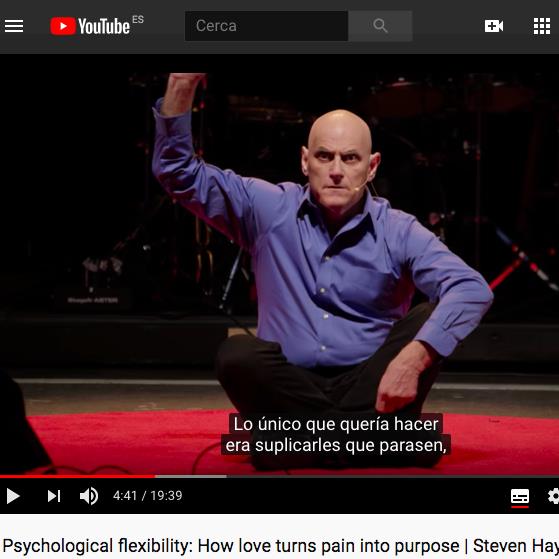--SECOND E-MAIL IN THE ACT COURSE BY S.C. HAYES (LONG POST)
Today, let's start with a question... Does it sometimes feel like you’re wrestling with your pain?
Maybe it feels like a tug-of-war with a big, ugly monster (whether you are dealing with depression, anxiety, physical pain, sorrowful memories, or some other negative situation).
It seems as though you can’t win. The harder you pull, the harder the monster pulls back. Sometimes it may even feel as if there’s a bottomless pit between you and the monster and, if you lose, you’ll be pulled into the pit and completely destroyed.
So, you pull and pull. You try harder and harder.
You look for different ways to pull, better ways to pull, stronger ways to pull. You try digging in your heels for more leverage or you try strengthening your muscles. You keep hoping that something will work.
Suppose, however, that you have a completely different job to do.
Perhaps it’s not your job to win this tug-of-war. Perhaps it’s your job to find a way to drop the rope.
The rule "If you don’t like something, get rid of it" works very well in the outside world.
However, the same rule applied to your internal world doesn’t work well at all.
You may have tried to get rid of psychological pain (anxiety/depression/worry) for a long time – but if you struggle with such things they tend to stick around.
In my TEDx Talk I explain why this is (https://www.youtube.com/watch?v=o79_gmO5ppg). More specifically, I talk about:
- Why trying to get rid of pain creates even more pain
- How I got my first panic attack (and how I learned to move forward with it)
- Why psychological flexibility is crucial to building a rich and meaningful life (especially if you’re struggling with anxiety, depression, or worry)
- Why embracing your pain is the kindest thing you can do for yourself
And much more.
